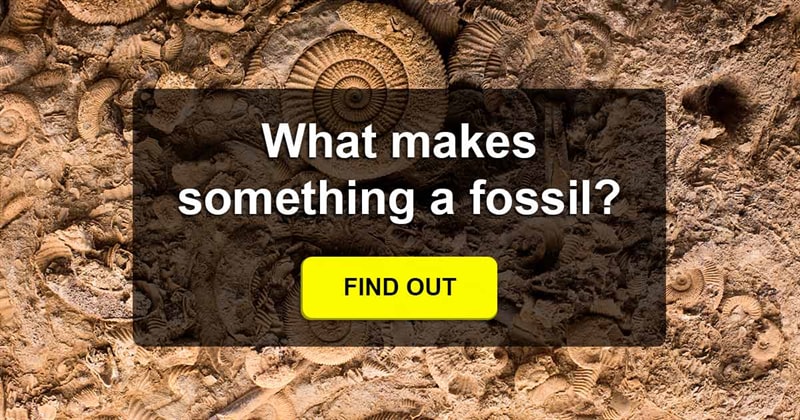How long does something have to be in the ground before you can call it a fossil?

The other answers here say that to be a fossil, something has to be mineralized in some way. The other answers are wrong.
At least, they don’t agree with common definitions in dictionaries and in paleontology. Usually, any remains or traces of an organism preserved in the ground are counted as fossils. People are less likely to use the term “fossil” for remains from the last 10,000 years (the Holocene, our geological period), but that is obviously arbitrary.
Here is the Oxford English Dictionary’s definition of “fossil”:
Something preserved in the ground, esp. in petrified form in rock, and recognizable as the remains of a living organism of a former geological period, or as preserving an impression or trace of such an organism.
Especially in petrified form, not always in petrified form. They also say that “the term fossil is usually reserved for remains older than 10,000 years”.
My textbook on paleobotany (Taylor et al., 2009, Paleobotany, Academic Press) doesn’t give a definition of the word “fossil”, but it does provide a nice catalog of the various kinds of plant fossils. Those include petrified wood, but they also include compression fossils, which are the result of the original plant material being compressed. No mineralization necessary. Pollen grains are a very common kind of plant fossil, and they are usually preserved unmineralized. Amber can isolate organic material sufficiently that it is preserved virtually unchanged.
Most paleontologists don’t discuss the definition of “fossil”, because it’s not terribly controversial. In one of my own papers I used the word for remains of the fossil rodent Cordimus hooijeri that are only a few hundred years old and not noticeably mineralized. Nobody called me out on it.
I did find one paper that explicitly discusses definitions: A New Species of Fossil Ptinus from Fossil Wood Rat Nests in California and Arizona (Coleoptera, Ptinidae), with a Postscript on the Definition of a Fossil. This was in the context of beetles from woodrat middens, which were preserved as mostly unchanged exoskeletons. The author settled on “A specimen, a replacement of a specimen, or the work or evidence of a specimen that lived in the past and was naturally preserved rather than buried by man.” Again, no reference to mineralization. He discussed using “fossil” only for remains that are more than 10,000 years old; “subfossil” for remains before recorded history; and “nonfossil” for remains from recorded history. But that seemed arbitrary and unworkable: recorded history started at different times in different places.
Fossils are the remains of organisms of the past, regardless of their mode of preservation. Where exactly you draw the line between “organisms of the past” and “organisms of the present that just happen to be dead” is arbitrary and it usually doesn’t matter. If you need a definition (for example, if you’re making a list of fossil and nonfossil species), you come up with a reasonable if arbitrary definition. If you don’t need a precise definition, you don’t.
Did you find this explanation interesting? You are welcome to share your thoughts in the comments below!
Interesting Facts
9 images of crazy moments shot by Internet users
8/12/2021
by
brian l
Here are nine crazy moments shot on camera by internet users :)
5 fascinating kangaroo facts
8/10/2021
by
brian l
Here are five cool facts about these amazing creatures!
Instances where nature restyled itself like an artsy magician
8/6/2021
by
brian l
We would be showing you images of where nature styled its creation like an artistic wizard.
5 potentially perilous plants and how to identify them
8/16/2021
by
brian l
Being able to identify perilous plants can save you a lot of hassle. Here are 5 plants you should steer clear of.
You never knew these 8 facts were actually true!
8/7/2021
by
Della Moon
Get ready for a set of big surprises, as you definitely never expected these 8 facts to be true...














